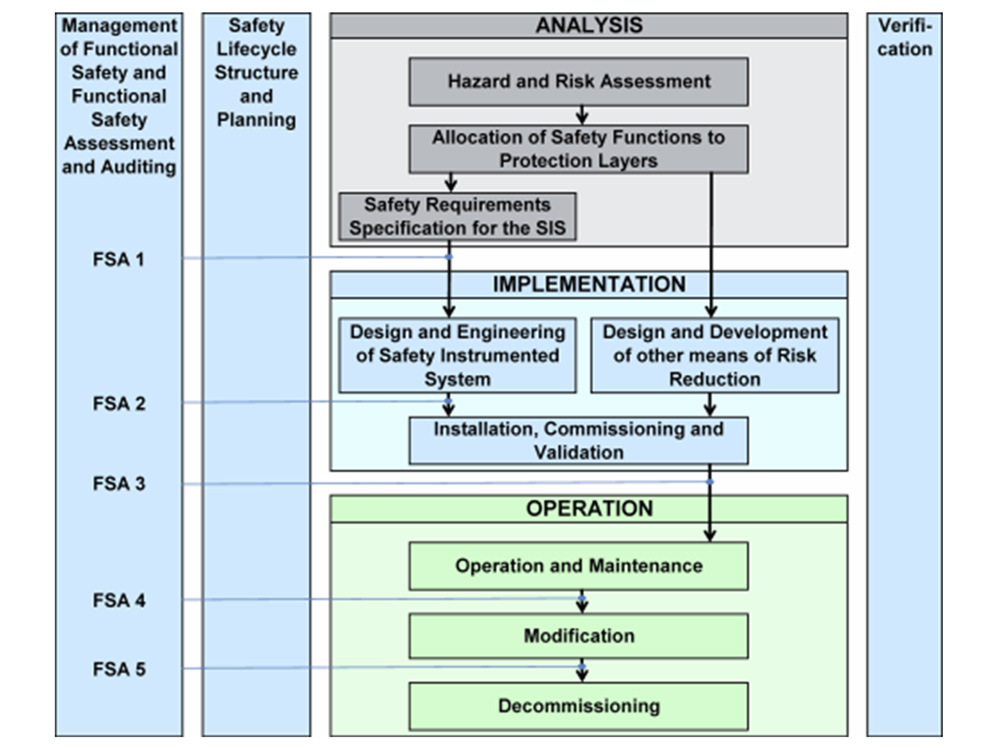Functional Safety Management
Workplace Safety Regulations require Operators of industrial plant to ensure that safety risks are reduced to an acceptable minimum. Compliance with industry best practice and ALARP principles can be demonstrated by implementing a Functional Safety Management (FSM) System in accordance with IEC 61511. IEC 61511-1 Ed. 2 contains requirements that impact Operators of new and existing plant.
Operators of industrial plant have a legal obligation to ensure that the work environment is safe for staff and external third parties. Compliance can be ensured by implementation of industry Best Practice (German: Anerkannten Regeln der Technik), depending on the specific process. For functional safety of industrial and process plant IEC 61511 is generally recognized as reflecting international best practice. This base code may be implemented by in-country variations, such as VDI/VDE 2180 in Germany. The cornerstone of the standard is implementation of a FSM system that covers all aspects of the ‘Safety Life Cycle’. The FSM system should be set-up at the start of a project and covers defined steps throughout the plant lifetime.
Based on over 35 year’s practical engineering management experience, PSC covers the whole Safety Life Cycle, from the initial hazard and risk assessment through detailed design, implementation, commissioning and operation up to decommissioning. PSC can manage initial FSM system set-up or provide support on specific compliance issues, including Verification & Validation activities.
Using proven templates, PSC will develop project specific documentation incorporating Operator’s existing safety procedures, provide verification services and even manage validation testing such as Factory Acceptance Testing (FAT) and Site Acceptance Testing (SAT). PSC’s activities are covered by its own audited FSM Plan in accordance with IEC 61511 (available on request); this can be cross-referenced in Client’s site-specific FSM Plan for the activities delegated to PSC responsibility.





